Features
Barista and Beyond
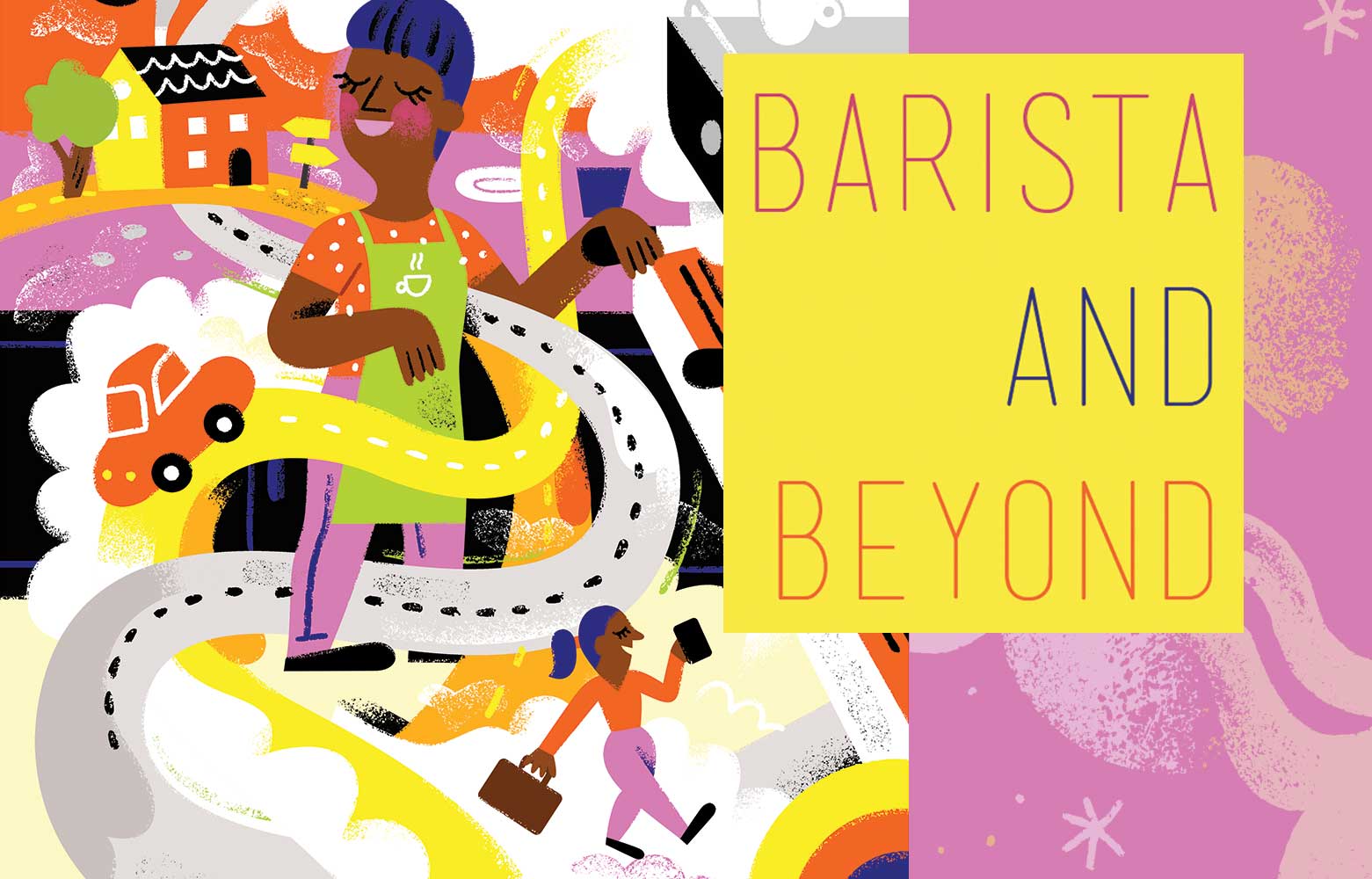
No really, that customer service job CAN jumpstart your career
By Julia Siemens, Illustration by Andy Miller
A forming espresso shot can mesmerize barista Samantha Brandvein. “It starts out dark, then gets all caramelly, and then at the end it will start to blond,” she says. “It’s so beautiful to watch.”
Customers commend Brandvein, a senior business major at Seattle Pacific University, for her espresso, and she’s even entered a barista competition. Although she worked as a barista, making and serving coffee, in high school, it wasn’t until being trained at Caffe Ladro in Seattle that she started to feel like an expert. “As soon as you learn what’s actually happening in that coffee, you gain some control.”
After graduation, Brandvein will continue to work at her current employer, Cherry Street Coffee House, with new responsibilities as director of coffee. It’s the perfect position for the self-described coffee nerd. While many Seattle Pacific students and alumni work as baristas before, during, and/or after graduation, the job may look like just a blip on their résumés. Nonetheless, they find, many of the skills gained apply to all kinds of different professions.
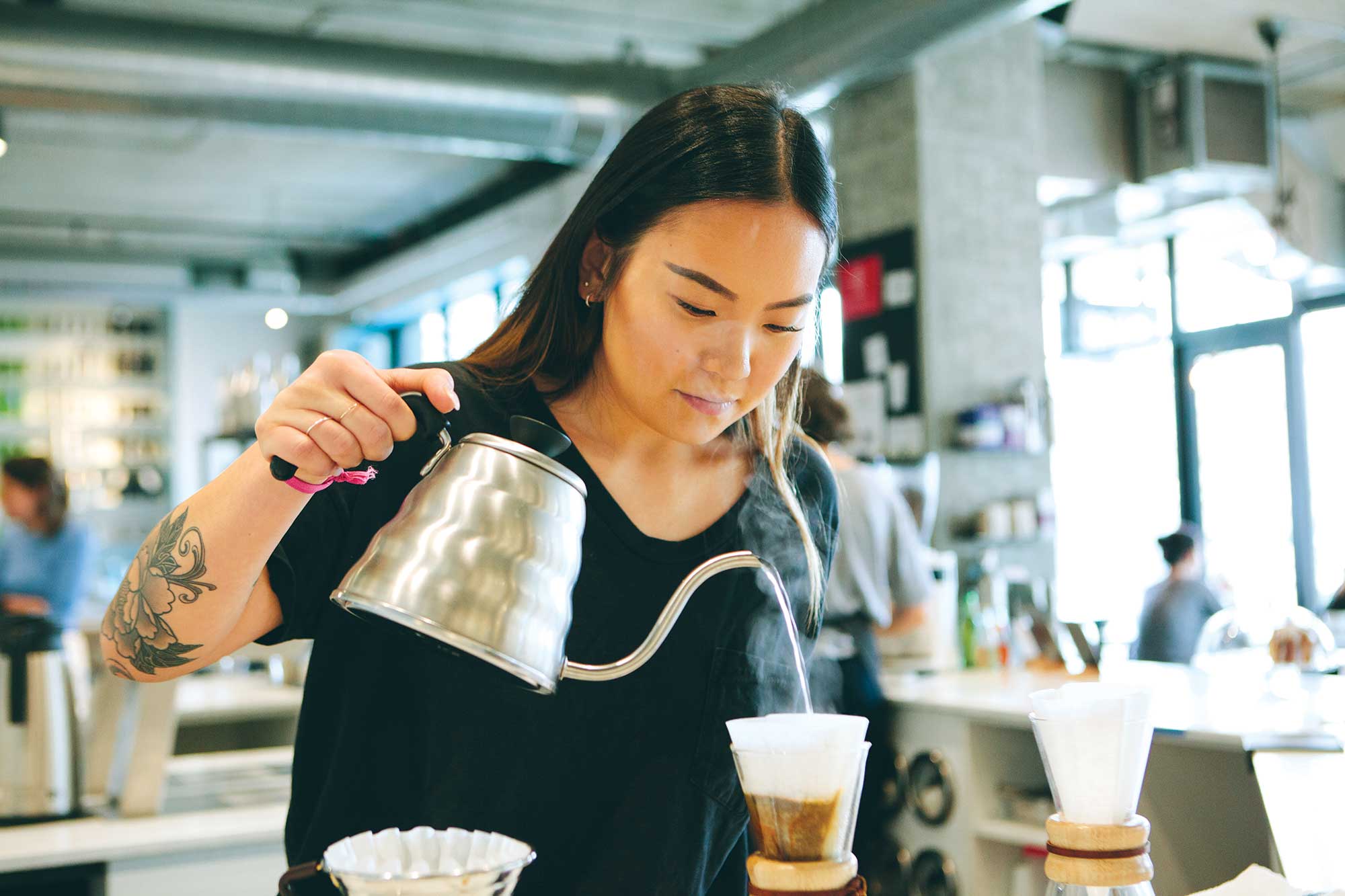
Jin Hee Lee creates a pour-over drink at the MiiR Flagship store.
Juggling Books and Beans
Seattle Pacific senior Jin Hee Lee doesn’t have much free time. Not only does she work 15–20 hours per week as a barista, but she is also a full-time art major with a photography emphasis, the art director of the chapel program, and a tuba player with the SPU brass ensemble.
“I’ve learned how to say no, set limits, and plan ahead,” she says.
According to Jordan Grant, assistant vice president of enrollment operations and student financial services, that is a benefit of working part time as a student. “While it may seem counterintuitive to work while carrying a full school load, research shows that students who work less than 20 hours per week are good at managing their time and do better academically,” Grant says.
As an artist, Lee is very detail-oriented, which she says has paid off as a barista. “You have to get the right amount of grams of coffee, and time it for the correct amount of seconds,” she says. “It’s more meticulous than it’s presented to the general public.”
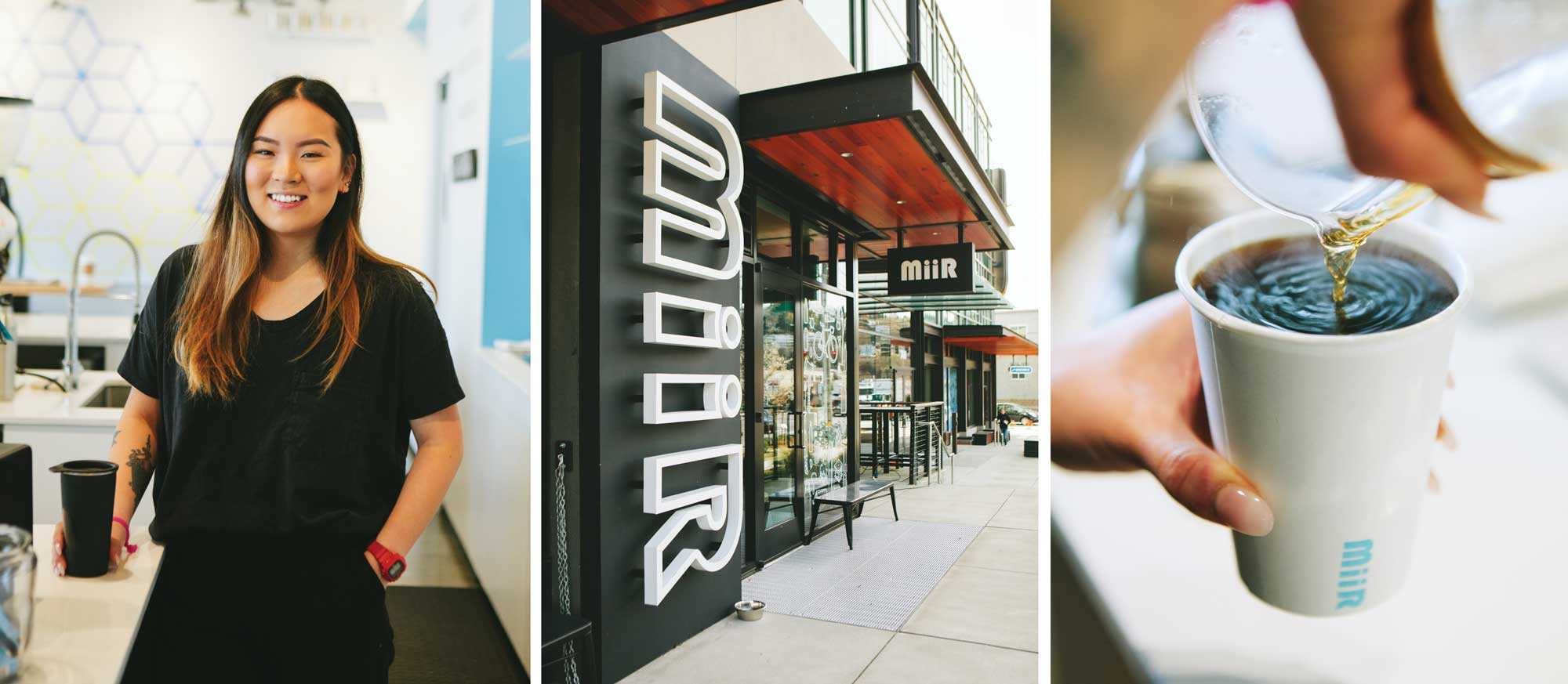
Jin Hee Lee works as a barista at the
MiiR flagship store, a
company founded by
Bryan Pape '07.
Begun as a water bottle
company, MiiR’s product
line now includes bikes
and bags. The flagship
store and cafe showcases
the company’s mission
to contribute to clean
water projects through
business.
Lee works in a specialty coffee shop that only serves traditional Italian coffee drinks, and donates a portion of its proceeds to clean water projects. She constantly explains the mission of the company, and the difference between a macchiato, cortado, and latte. “It has given me a place to practice educating people in a quick way,” she says.
Not all students recognize the expertise they gain aside from making the perfect cup of coffee, and sometimes students hesitate to put their barista experience on their résumé or mention it in an interview. This is a mistake, according to SPU Career Counselor Patty Farmer.
“Students learn so much from showing up on time each day, interacting with clients, and coming up with solutions to issues with customers or co-workers,” says Farmer, who works in SPU’s Center for Career and Calling. “We help students realize that there are a lot of valuable skills that translate.”
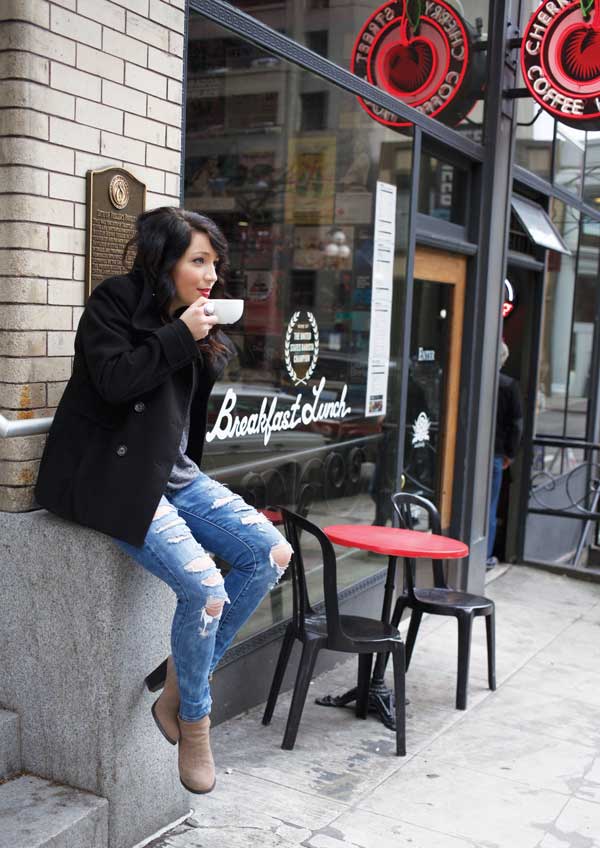 Samantha Brandvien
plans to keep building her
career at Cherry Street Coffee
following graduation.
Samantha Brandvien
plans to keep building her
career at Cherry Street Coffee
following graduation.
A Master’s in Self Awareness
Lindsey Maples Dahlstrom ’09 calls the three years she worked as a barista at Simply Desserts in Fremont her graduate school, because of what she learned about herself and others.
“You’re talking to other people and you want them to be happy,” she says. “When someone says something rude, it affects you. Now, I’m super aware of what I’m saying and how I’m saying it.”
She and her husband, Noah, dreamed of buying their own coffee shop for years, and finally started Argonaut Espresso in Leavenworth, Washington, in 2014. Argonaut is a walk-up stand, dwarfed by the Cascade mountains in the background — one of the reasons it was recently named one of the most unique coffee shops in Washington by onlyinyourstate.com.
The shop focuses on two things: serving the best coffee in town and “making sure customers are having a good day.”
Baristas are allowed a unique window into people’s lives, such as the time when one of Brandvein’s regular customers broke down in tears because she had learned that her childhood home was consumed by the Colorado wildfires. “She had always been short with me before that,” says Brandvein, who went to the other side of the counter to give the woman a hug.
Working as a barista at Seattle’s Macrina Bakery taught 2013 philosophy and theology double major Jacob Howell how to stand up for himself in his first ministry job.
As a director of family and youth ministry, he once had a mother ask him to confront a youth group student who she believed was teaching her daughter to use bad language. But from Howell’s perspective, the daughter was the instigator. “I had to explain that to the mother very gently,” he says, adding that it was an art he picked up from interactions with customers who felt he had made the wrong drink.
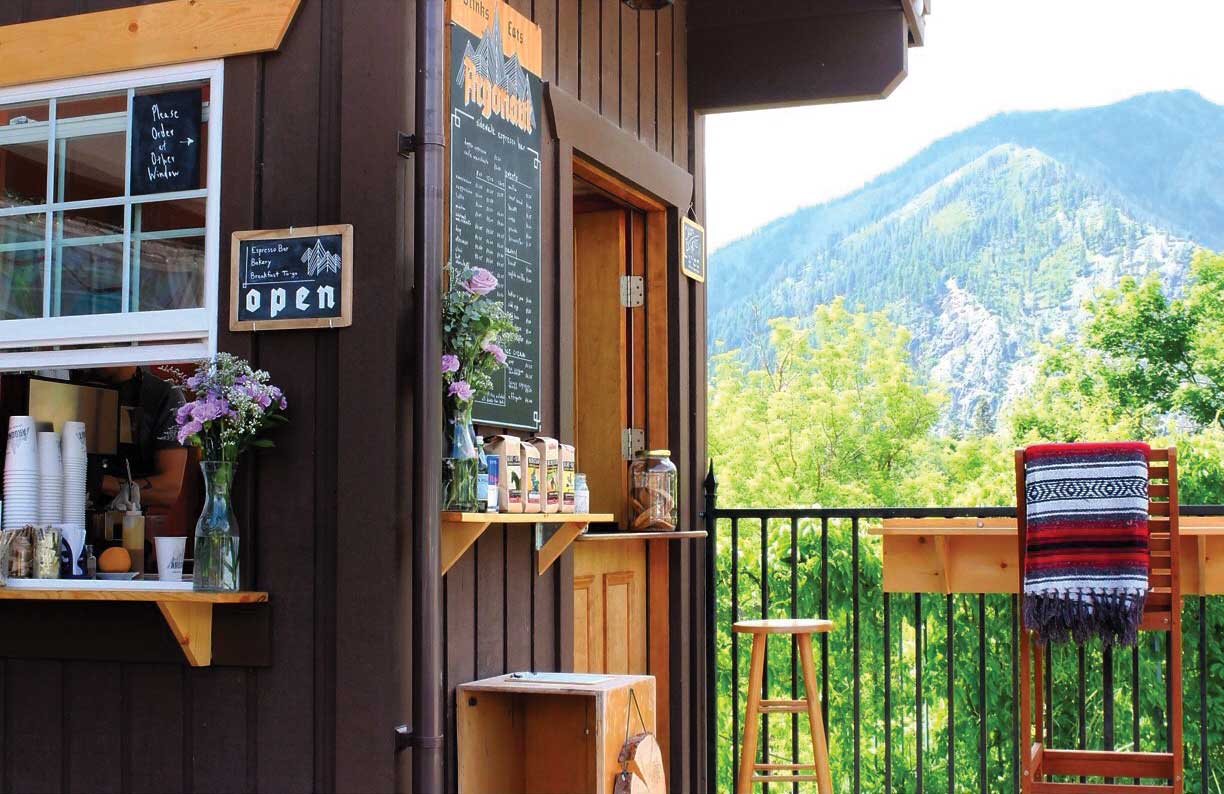
Dahlstrom’s Argonaut Espresso has a stunning Cascade
mountain view.
“Sometimes with coffee, you just bite the bullet,” he says, “but sometimes you can say tactfully, ‘Well, you did order a cappuccino, which has half foam, and that’s why there’s half foam in it.’”
After graduating from SPU with a business degree, Elisa Vatn ’13 landed a barista job at Starbucks with the hope of moving up to corporate. Although she later found a recruiting position at Amazon.com, her Starbucks gig prepped her for life at a big company.
Vatn was a hostess at Ray’s Boathouse in Ballard for years, and quickly discovered how much more regulated large corporations can be. Starbucks expected all baristas to move their hands on the espresso machine in a certain way to avoid accidents, and all drinks were supposed to taste the same at every single location.
“You have to work with other people and abide by company policy at all times, but if a problem arises, you have to figure out how to deal with it,” Vatn says.
Now that Vatn is in operations engineering recruiting at Amazon.com, she says that she’s used the experience to her advantage, navigating complex systems and making use of data to help inform her work. Vatn believes that everyone would benefit from customer service experience. “You always have some kind of customer in your job whatever you do.”
